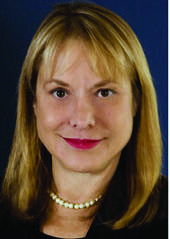Bill Cosby is a free man, but he is not an innocent one. No one has found him not guilty.
The big issue in the case — the critical admission of the testimony of other Cosby victims, the difference between the first and second trials — was not even addressed.
Bill Cosby is a free man because of a news release issued by Bruce Castor.
If the name sounds familiar, it is probably because Castor was one of the few attorneys in this country who was willing to defend President Donald Trump in the second impeachment trial. It did not go well: Press reports described it as confusing and rambling. Trump was reportedly “furious” about Castor’s “almost somnambulant defense,” while Republican Sen. John Cornyn said, “The president’s lawyer just rambled on and on.” Cornyn quipped, “I’ve seen a lot of lawyers and a lot of arguments, and that was not one of the finest I’ve seen.”
This time, it was Castor’s press release when he was county district attorney that led to the dramatic reversal by the Pennsylvania Supreme Court.
Even though there was no formal, written nonprosecution agreement, and even though Andrea Constand and her team were not informed of the decision except by the news release, the Pennsylvania Supreme Court held that Castor’s press release was binding.
If this sort of “get out of jail card” justice sounds painfully familiar, it’s because that is how Jeffrey Epstein stayed out of prison for so long and how his lawyers hoped to get him out of prison this time. Another Trumper, Labor Secretary Alexander Acosta, had made a sweetheart plea deal with Epstein that all he had to do was stay home for a few months and he would never face prosecution for his wrongdoing.
New York prosecutors didn’t buy it, which was why Epstein found himself awaiting charges in New York. Castor’s successors didn’t buy it, which was why Cosby was tried and convicted of sexual assault.
Last week, the Pennsylvania Supreme Court did buy it, holding that even a news release was enough to foreclose future prosecution.
The reason plea agreements have to be enforced is because otherwise, defendants would not plead guilty and the system would collapse. That’s the dirty little secret about the criminal justice system: It depends on virtually everybody who is charged with a crime pleading guilty. For minor crimes, this could mean spending more time in jail before the plea than after, which has long been the best rough justice that an overcrowded system could provide. These days, where there is no cash bail, an overcrowded system can offer nothing at all.
But in Cosby’s case, it wasn’t an agreement to plead guilty. It was a gift from a media-loving lawyer to a celebrity.
Of course, Castor doesn’t see it that way. He was doing her a favor, Castor testified in a 2016 deposition, because Cosby would be more forthcoming in the civil case if the possibility of criminal charges was off the table. Castor said he believed the victim but didn’t think she had enough evidence.
Actually, it appears that he didn’t have the guts to try a tough case, which requires more than a lawyer who — on his best day, with the world watching — was “almost somnambulant,” my word of the day.
Cosby’s release had nothing to do with rape law. It should not change anything. But the picture of a man who admitted to drugging women at parties (that was the help in the civil case) leaving prison as a free man had to be a trigger for anyone who has been the victim of sexual assault. Another one got away with it.




